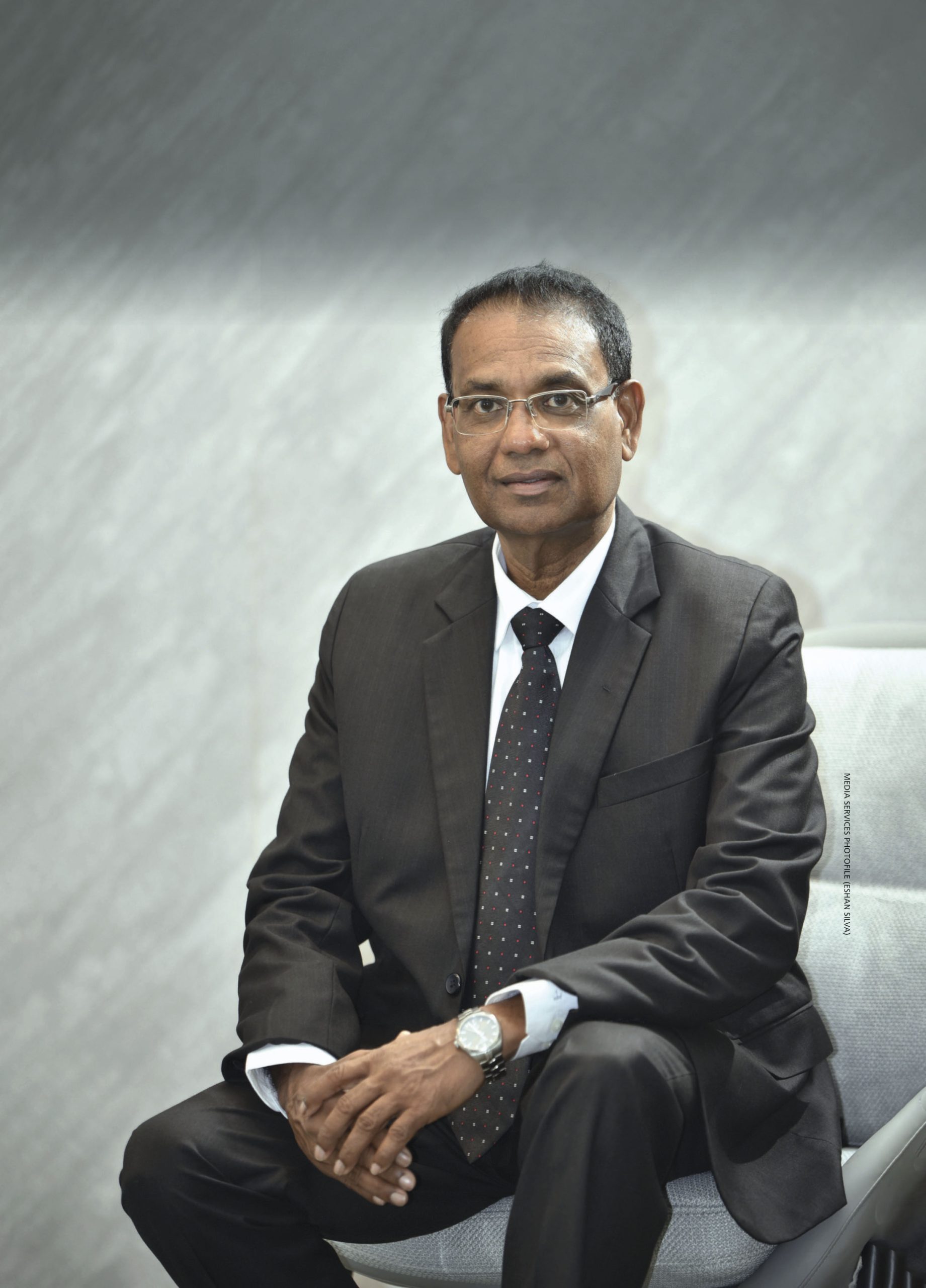EXTERNAL TRADE
Q: What structural reforms or policy changes would you like to see to make Sri Lanka more business friendly?
A: To make Sri Lanka more business friendly, there must be a greater emphasis on streamlining the process of starting a business – i.e. by minimising paperwork, accelerating approvals, and introducing a more transparent and user-friendly registration system.
Compiled by Tamara Rebeira
COMPETING BEYOND BORDERS
Bandula Egodage champions policy reform as a catalyst for global relevance
Strengthening collaboration between universities and the private sector is also essential, to drive innovation and R&D.
Supporting SMEs through concessionary or subsidised access to finance would promote entrepreneurship and economic growth. A focussed export promotion strategy is needed to expand into emerging high growth markets with a greater emphasis on value addition to local products and services.
Digitalising key processes, especially in customs and international trade, will help improve efficiency. In addition, implementing long-term and stable tax reforms that are fair, consistent and sustainable is crucial for creating a predictable business environment.
Q: In your view, how resilient is the local business sector in adapting to economic or political shifts?
A: The business sector has shown strong resilience in navigating economic and political shifts, particularly during the ongoing macroeconomic recovery.
Following a debilitating financial and economic crisis, export driven industries such as apparel, ICT and tourism have adapted by making strategic shifts, cutting costs and embracing digital transformation.
Backed by the IMF reform programme, Sri Lanka has made progress in stabilising the economy – by curbing inflation, rebuilding reserves and moving towards fiscal consolidation.
As a result, monetary conditions have improved with falling interest rates and a stable currency offering much needed relief to businesses. This has helped revive investor confidence and ease credit access, especially for large firms and well-structured SMEs.
That said, smaller and domestic focussed enterprises continue to face challenges; they need targeted policy support, improved financial inclusion and regulatory clarity to fully benefit from the recovery.
Q: What are some key differences you’ve noticed between Sri Lanka and international markets when doing business?
A: A crucial difference I’ve observed is the greater ease and reliability in managing costs and forecasting taxes. Stable macroeconomic conditions – predictable inflation, interest rates and exchange rates – enable businesses in these markets to plan with greater confidence.
Foreign tax systems are typically more transparent, consistent and digitised, making it easier to understand obligations and integrate them into long-term planning. Government policies on taxation, trade and investment also tend to be stable and long-term in focus, reducing the risk of sudden regulatory changes.
Another distinction is the level of state support, especially funding for high potential businesses. Public sector policies are often designed to collaborate with and incentivise private sector growth.
Operationally, international markets offer efficient digital logistics systems and business environments, which emphasise flexibility, inclusivity and global standards, with agile work models, fewer fixed holidays and structured but flexible leave policies.
Gender inclusion is treated as a core priority with active efforts to remove barriers and promote leadership diversity. Higher per capita income also translates into greater spending power, driving demand for premium products, innovation led models and scalable growth strategies.
Q: How can Sri Lanka improve its export performance and grow its presence in new markets?
A: To improve export performance and expand into new markets, Sri Lanka must diversify its export base. Prioritising high-tech products and investing in R&D can shift the focus from low value exports to innovative high-quality offerings that meet global standards.
Strategic trade alignments and targeting high growth markets will reduce overdependence and enhance resilience. Upgrading logistics to be modern, efficient and cost effective is also vital for competing in global value chains.
Strong contemporary branding that showcases Sri Lanka’s culture, heritage and ethical production can enhance global appeal. Embassies and commercial missions should be leveraged to provide market insights, build networks and facilitate trade.
Empowering SMEs – who make up over 75 percent of local businesses – is key to broadening the export base. Effective export promotion will further connect local enterprises to global opportunities and elevate Sri Lanka’s international presence.
Q: Do you believe Sri Lanka is doing enough to develop talent that can compete globally?
A: It’s clear that while progress has been made, several areas still need focussed attention.
To remain competitive in a technology driven global economy, we must embed automation focussed skills across education, training and policy.
Stronger links between education and industry are also critical – high-quality structured internships can equip students and early career professionals with real world experience, and align their skills with global standards.
Soft skills must be integrated into the learning process – from curriculum and pedagogy, to assessment and institutional culture – to build a workforce that is confident, collaborative and adaptable.
At the same time, developing digital fluency, technical specialisation and innovative thinking across all levels of talent development is essential to shaping professionals who are not only globally competitive but in demand.
Increasing foreign exposure can also help Sri Lankan talent gain the mindset, skills and confidence needed to thrive in international settings.






